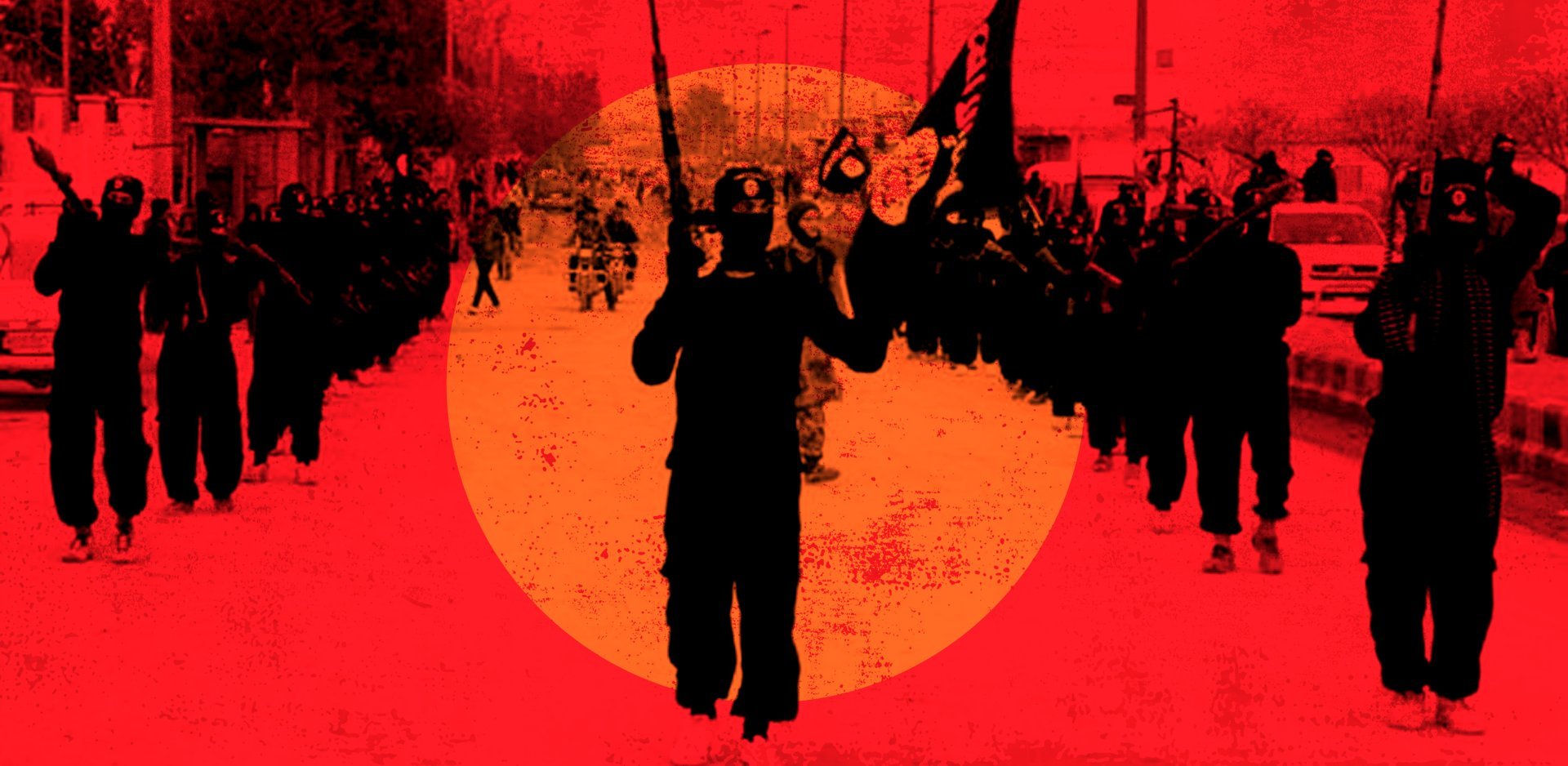“Evil of Terror Will Come Back to Haunt its Sponsors”

BASIRAT POLITICAL CENTER
MOSTAFA GHORBANI
The West is supporting terrorist groups similar to al-Qaeda such as ISIL today despite the fact that it has experienced the danger posed by al-Qaeda and seen how the terrorist group jeopardized Western countries’ interests in the region and in the whole world.
In a meeting with Iranian military top brass on April 9, 2017, Leader of Iran’s Islamic Revolution Ayatollah Seyyed Ali Khamenei touched upon the West’s wrong policy of backing terrorist groups in the Middle East region, and underlined the danger posed by such groups will come back to haunt the US in the future.
"Today, Europe is facing trouble for its wrong move to reinforce Takfiris. People have no security at home and in the streets, and the US is repeating the same wrong,” said the Leader.
It seems the Leader’s prudent prediction is a precise prophecy based on historical experience. Now the question is what historical documents Ayatollah Khamenei’s prediction is based on. In fact, to further expound on the Leader’s statements, one should say the active presence of terrorists in the region for more than three decades shows this evil has always been supported by foreigners, and that terrorists have needed their backing in order to survive. Moreover, terrorists have always acted in line with their demands. What is important is that the cooperation and alliance between foreigners and terrorists have been coupled with numerous fears and hopes.
In other words, although foreigners seek to play in the region with the card of terrorism, and there has been a close relationship between terrorists and them, terrorists did an about-face and came to strike the interests of their advocates, which, in turn, led their supporters to turn against them.
The case of Saddam Hussein, the former Iraqi strongman, is a testament to that. Western countries and reactionary Arab states in the region lent unflinching support to Saddam Hussein during the eight-year Iraqi imposed war on Iran in the 1980s. But when the war ended, Iraq invaded Kuwait, which was one of Saddam Hussein supporters. The Iraqi dictator forgot all the support that Kuwait had offered Baghdad. That prompted Saddam Hussein’s supporters, who had spared no effort to help him during the Iraqi war on Iran, to form a US-led coalition against him to force him out of Kuwait.
Al-Qaeda ringleader Osama bin Laden, who had returned to Saudi Arabia at the time, asked Saudi King Fahd to leave it to al-Qaeda to force Iraqis out of Kuwait. But King Fahd turned down bin Laden’s request and allied itself with the US instead. Accordingly, bin Laden called the US an occupier, termed the Al Saud regime a mercenary, and left Saudi Arabia. Bin Laden’s leaving Saudi Arabia and entering Sudan gave him the opportunity to launch a new operation against the US by calling in al-Qaeda agents and Afghan Arabs.
Among al-Qaeda’s operations against the US was the attack on an American warship in the Gulf of Aden. But at last, with Washington putting pressure on the Sudanese government, bin Laden returned from Sudan to Afghanistan. The arrival of bin Laden and his supporters and associates in Afghanistan against the backdrop of internal fighting between the Taliban and the government of Burhanuddin Rabbani-Ahmad Shah Massoud in 1995 tipped the balance of power in favour of the Taliban. Finally, the Taliban backed by al-Qaeda captured Kabul in 1996. Then al-Qaeda carried out operations against US targets such as the bombing of US embassies in Kenya and Tanzania in 1997 and the attack on an American warship in Yemen in 1998. Then on the 11th of September, 2001, al-Qaeda struck the World Trade Center (Twin Towers) in the US (although there are still serious doubts about the motive behind the attack and who the perpetrators were). The incident was followed by an attack on Afghanistan by the US and its allies, which led to the overthrow of the Taliban rule. But the US-led attack on Afghanistan did not wipe out al-Qaeda.
What is interesting is that at the same time that these countries were supporting Saddam Hussein, the late leader of Iran’s Islamic Revolution Imam Khomeini, in a warning to Saddam’s advocates, compared Saddam Hussein to a wolf that, when done with his adventurism with Iran, would turn to them (his supporters). Saddam Hussein’s attack on Kuwait proved that Imam Khomeini’s prediction was true.
Al-Qaeda is regarded as an international terrorist group. After the former Soviet Union’s invasion of Afghanistan, al-Qaeda was formed with the support of Saudi Arabia, the US, etc. to force the Soviets out of Afghanistan. When the Soviet Union left Afghanistan, al-Qaeda took action against its supporters and formed a terrorist government in Afghanistan by forming a coalition with the Taliban, a government which was toppled after the US attacked Afghanistan.
All in all, the West is supporting al-Qaeda-like terrorist groups while ignoring the fact that these very groups are threatening Western countries’ interests both in the Middle East region and across the entire world. So, given the seemingly complex, but basically simple game that the US has started with terrorist groups in Iraq and Syria, Ayatollah Khamenei has recommended they regard past experience as an object lesson and not to get themselves drawn into the vortex of terrorism by supporting terrorists in the region.
















